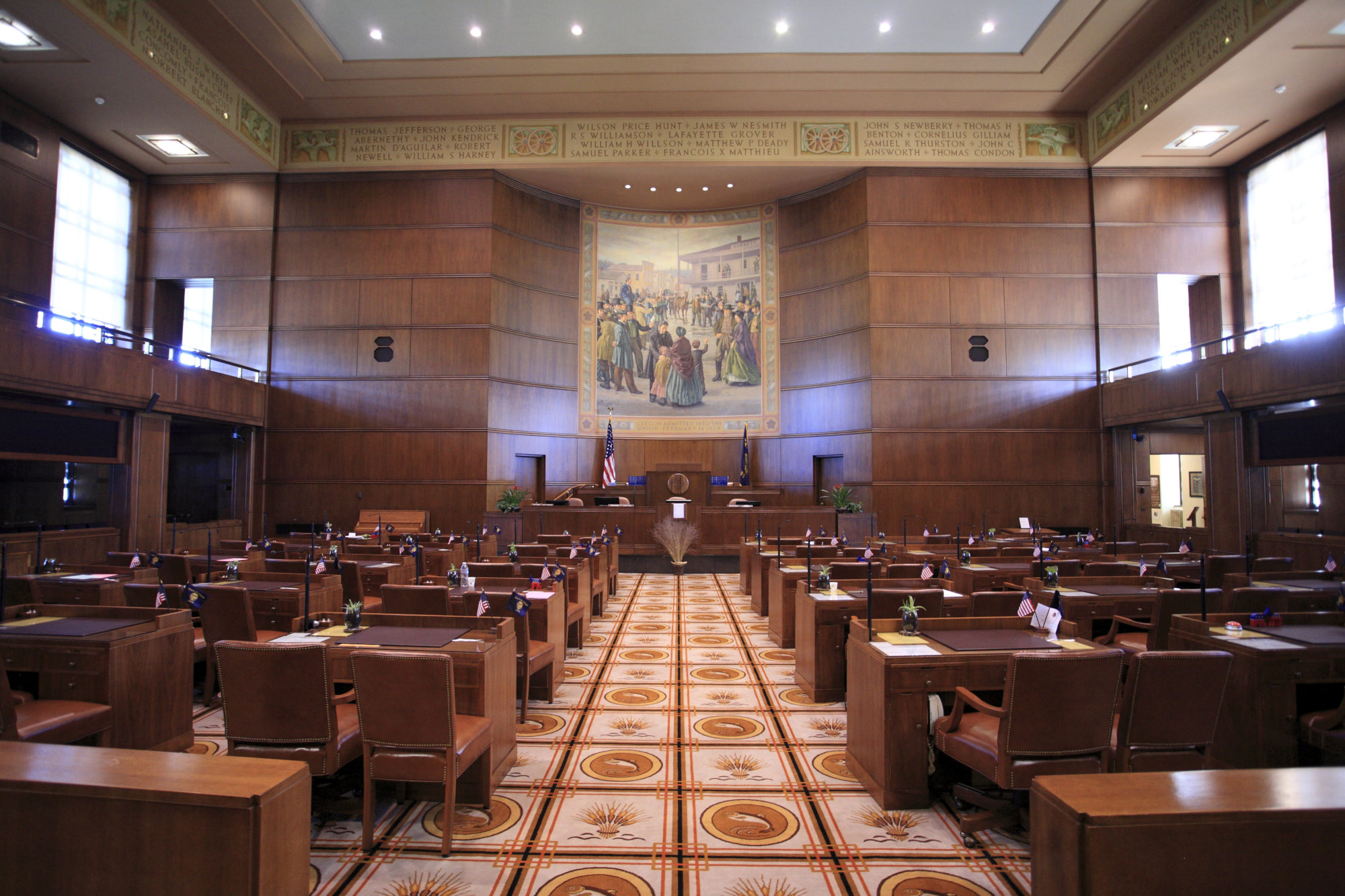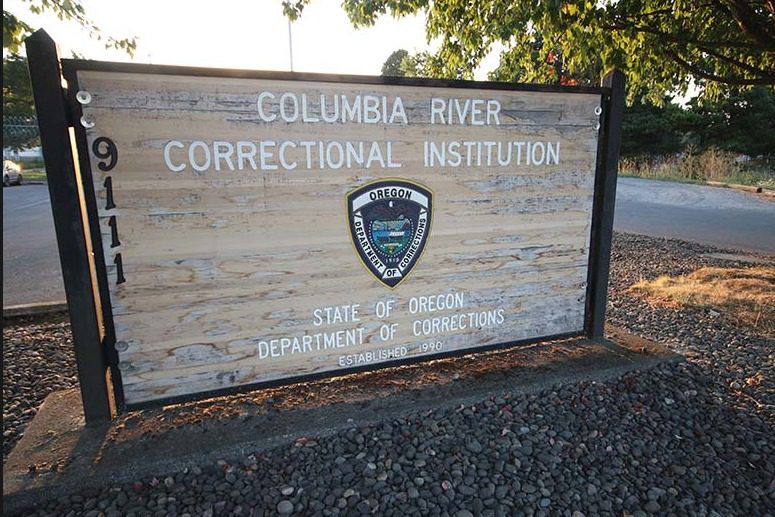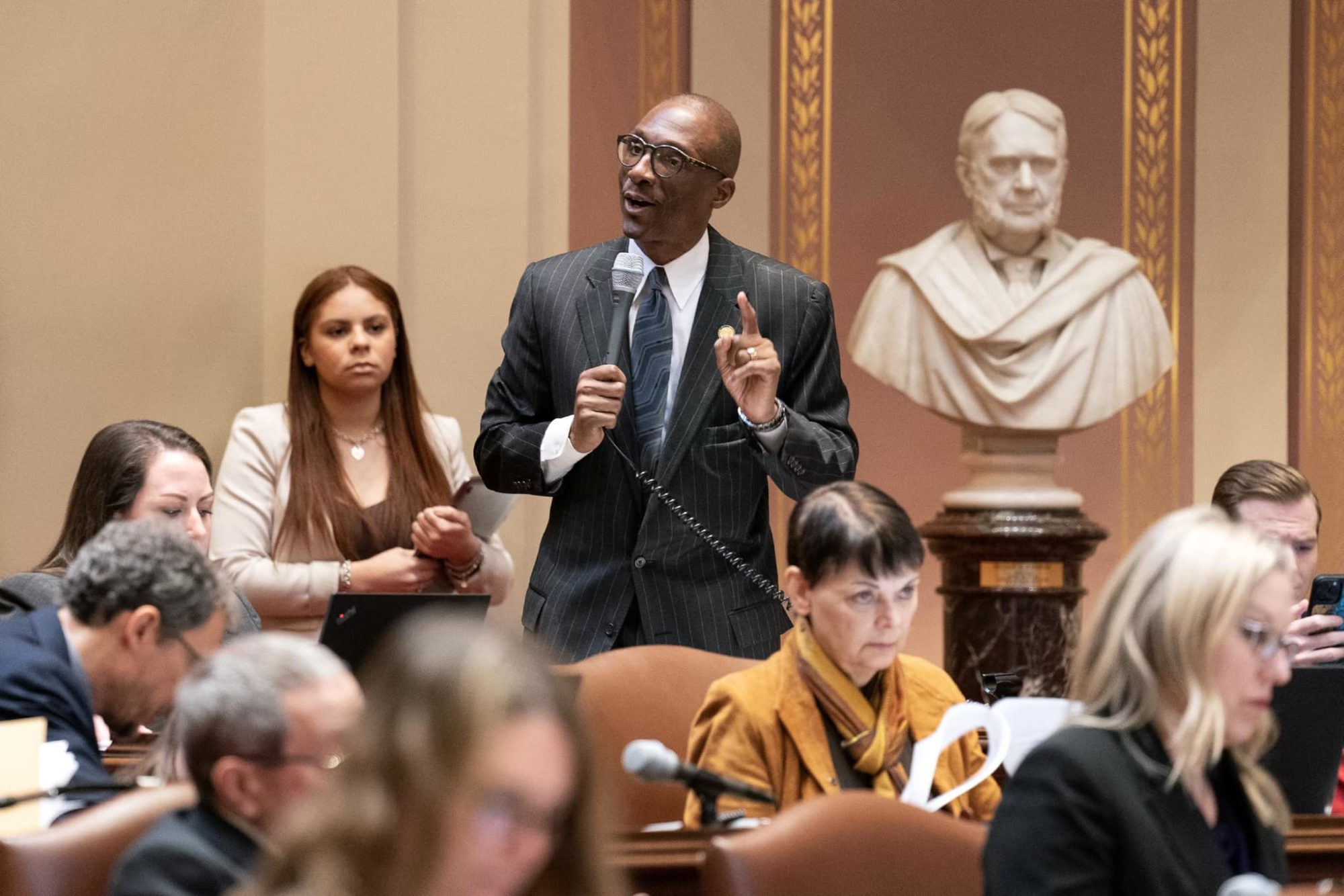Oregon Tries Again to Restore Voting Rights in Prisons
Current and former prisoners are speaking up to urge lawmakers to extend the franchise.
| March 16, 2023

Enrique Rivera turned eighteen inside Oregon’s MacLaren Youth Correctional Facility during the 2000 presidential election. Rivera had never been very interested in politics, but his father had taught him to care about the planet, so he was interested in Al Gore’s candidacy from an environmentalist perspective. But when he asked the facility’s officials about the election, he said they told him that prisoners couldn’t vote.
In prison, Rivera started to connect the dots between voting and the criminal legal policies that had determined his fate. He had been charged as an adult under Measure 11, a harsh mandatory minimum ballot initiative approved by voters just a few years earlier, in 1994. “I realized that I was now in this situation as a juvenile, being charged as an adult, because folks decided that that’s what they wanted to happen,” he recalled. “I wasn’t just born into these laws that existed since time immemorial—people decided these things. I wanted to be a person that could decide things.”
Rivera got out in 2004, and he’s been voting ever since. Recently, he submitted a letter to the state legislature affirming his support for Senate Bill 579, a bill that would allow incarcerated Oregonians to vote. The bill, which is sponsored by Democratic Senator Floyd Prozanski and a broad coalition of voting rights and social justice organizations, is now on its third try after failing to even make it out of committee in the previous two legislative sessions. Last week, it advanced past its first committee this session.
If it passes, Oregon would join Maine, Vermont, and Washington, D.C., in extending the right to vote to all voting-age citizens, including those who are incarcerated. Technically, this would make Oregon the first state to restore voting rights for people incarcerated with felonies after taking them away—Maine and Vermont never stripped people of the right to vote in the first place, and D.C., which adopted this reform in 2020, still isn’t a state—and proponents hope this propels a national movement forward.
The bill would extend the franchise to those with felony convictions among the nearly 15,000 people in the Oregon prison system, which incarcerates Black people at a rate significantly higher than their share of the state’s population. Oregon currently disenfranchises people who are incarcerated over a felony conviction, though people detained pretrial and with misdemeanors can vote, and it restores their voting rights upon their release. This bill would require ballots and other voting material to be sent to all registered voters at carceral facilities in Oregon, and people in prison would be considered registered at their last known address, meaning they would be able to weigh in on elections where they have family and community ties, rather than wherever their prison is situated.
Oregon is known for being a leader on voting protections: the state has automatic voter registration and a universal vote-by-mail system, and has long allowed people with felony convictions who have finished serving their time to vote. This legislation represents perhaps the highest test of those commitments, and the public debate on the issue reveals a deep philosophical divide between those who believe voting is a fundamental right, and those who believe it is a privilege that can and should be taken away.
The US constitution mentions the phrase “right to vote” a number of times, but that right has often been restricted and contingent on which populations were seen as deserving at any given time. Long after voting rights were extended to formerly enslaved men and women of all classes, the most durable example of disenfranchisement remains people in prison or with felony convictions.
“Anything that infringes on a fundamental right like voting should draw strict scrutiny from the courts,” said Christopher Uggen, a sociologist and expert on felony disenfranchisement who teaches at the University of Minnesota. “That means we should look very skeptically at any attempts to restrict the franchise—but we have this big carve-out for people convicted of crimes, at least as interpreted by the Supreme Court in what’s been a durable precedent. It’s sort of saying, you know, it’s not quite a fundamental right—and especially not for these folks.”
Many states enacted felony disenfranchisement in response to the expansion of voting rights to Black people after the Civil War. “It is clear in the United States, it is tied to the threat of racial power relations being overturned or undermined or subverted in some way,” said Uggen. “Once you’re labeled a felon, the old forms of discrimination—employment discrimination, housing discrimination, denial of the right to vote, denial of educational opportunity, denial of food stamps and other public benefits, and exclusion from jury service—are suddenly legal,” Michelle Alexander writes in her seminal book The New Jim Crow.
Oregon’s felony disenfranchisement law dates to 1857 and can be traced back to the state’s attempts to exclude non-white people from settling there. Many laws that originated in racism “to this day haven’t been changed and continue to be shadows in our lives,” said Anthony Pickens. Like Rivera, Pickens got interested in politics while incarcerated. “I did a lot of reading at that time on the history of the United States, the history of movements and a lot of stuff from the Panther era,” he told Bolts. Today, he works as a paralegal for Oregon Justice Resource Center, one of the main organizations sponsoring the legislation.
Pickens said he often shares the history of Oregon’s felony disenfranchisement law with skeptical interlocutors. “A lot of people honestly don’t have an understanding of that background and are shocked and surprised…somehow,” he told Bolts.
To Pickens, allowing prisoners to vote would force politicians to see them as a constituent group and hopefully do more to prevent abuse and mistreatment behind bars. As it stands currently, incarcerated Americans have little recourse to address prison conditions short of strikes. “The majority of individuals that are incarcerated in our prisons and jails, they don’t end up having a voice and a lot of misconduct is able to be covered up or never even heard of because of that,” he said.
In recent years, states around the country have enacted laws that expand voter eligibility and restore ballot access to millions of people. The most recent example is Minnesota, which adopted a law earlier this month to allow people on parole or probation to vote.
Given this momentum, Jessica Maravilla, policy director at the ACLU of Oregon, said she’s optimistic about Senate Bill 579 passing this time around. “Legislators are a lot more educated because there has been several years of this legislation,” she told Bolts. “We’re seeing a lot of movement in this area, there’s more than 20 states that are working to re-enfranchise incarcerated people. And so it really puts Oregon in a position to lead the way.”
But there is still a sharp divide between the political success of measures advocating for the rights of formerly incarcerated people versus those for currently incarcerated people. Proposals to extend the franchise into prisons have indeed multiplied —especially since a national prison strike named this as a core demand in 2018. Since then, bills have been filed in California, Hawaii, Illinois, Massachusetts, New York, and other states—but they have largely stalled, other than a landmark win in D.C. three years ago.
The Oregon legislation’s supporters will also have to work to overcome the increasingly partisan associations of felony re-enfranchisement, which is likely connected to heightened polarization around both criminal justice reform and voting rights. “There was a time 15-20 years ago where it was the Republican governors who had political cover to do slightly bolder reintegration and reentry programs,” said Uggen, referencing then-Texas Governor George W. Bush’s signing of a 1997 bill restoring voting rights to Texans with felony convictions who had completed their sentences. “In recent years, it’s become a much more partisan story.”
The bill could pass without bipartisan support, given that Democrats control both chambers of the state legislature.After passing the Senate Judiciary Committee last week by a 3-2 vote, the bill will move on to the senate’s appropriations committee before a full floor vote. In recent years, the bill has been hampered by fiscal estimates that would require more full-time staff to implement the bill. Oregon Justice Resource Center believes its chances are better than when it was introduced last year, during Oregon’s short biannual 35-day legislative session, but OJRC policy director Zach Winston said at a recent briefing that the sponsors are open to pushing out the start date in order to lessen concerns about implementation.
The Oregon GOP has been consistent in its opposition to the legislation. A Republican senator from Portland told the Senate that the bill would “allow the worst evil––the ability to vote while incarcerated for child rape and other horrific crimes.” Republicans also argue that people in prison will vote for politicians they perceive as softer on crime. In 2021, the communications director for the Oregon Republican Party said that if the right to vote is extended to prisoners, “they might be electing your county commission and city council pretty soon.”
The deep-seated beliefs about crime, punishment, democracy, and redemption that the subject of prison voting tends to bring up were on full display at a late-January Senate Judiciary Committee hearing on SB579. Rivera’s letter of support was one of an unusually high number of written testimonies submitted on both sides of the issue.
“The fact that felons are felons means they are losing their liberty/right to vote,” wrote one woman. “After all, we don’t want them voting for someone who would pardon or commute their sentence for votes, now would we.” Another person wrote: “Let people experience the consequences of their poor choices. Stop protecting the criminals and start protecting the victims and the truly innocent people!”
This level of emotion around prison voting is somewhat unique to the United States, according to Uggen. Many democracies around the world have either restored the right to vote to incarcerated people, or never took it away to begin with. Nearly every European country allows some or all incarcerated people to vote. France has in recent years worked on reforms to increase voter turnout from prisons after restoring the right back in 1994. “US crime policy is heavily driven by emotion and stigma,” Uggen said. “I was asked once at a talk radio show whether I believe that Charles Manson should decide who the President of the United States should be.”
By contrast, Uggen said, “I attended a conference in Barcelona not long ago, where the fulcrum of debate was whether you can hold office from prison. I get a little whiplash going from there to Florida.”
One sign of this increased polarization is the talking point that Democrats only support prison voting because they want to pad their voter rolls. Supporters of the bill, by contrast, argue that felon re-enfranchisement is a civil rights imperative that promotes civic engagement and keeps people connected to their communities.
This idea of re-enfranchisement as partisan political play didn’t jibe with Rivera’s experience in prison. “A lot of folks came from very rural communities, so their upbringing was a bit more conservative,” he said. “I don’t think that these folks would have voted for somebody that they saw as like a liberal or whatnot, regardless of their stance [on criminal justice policy].”
Maravilla also stressed that ACLU Oregon does not see prison voting as a partisan issue. “We’re looking at this as an equal rights bill on access to democracy, so we have reached out to Republicans as well,” she said. “We have had conversations with constituents of Republican legislators who are very much in support of this legislation. We’ve also spoken to a lot of incarcerated individuals who consider themselves Republicans who support this bill.”
The Senate Judiciary Committee hearing received a number of letters from currently incarcerated people. One was from John Landis, who submitted testimony from the Snake River Correctional Institution in Ontario, Oregon.
“I am a registered Republican and I believe all American citizens have a right (even a duty) to vote,” he wrote. “I served my country in the US army to protect citizens’ rights.”
Phillip Bates, who is incarcerated at the same facility, also wrote in. Bates noted that while incarcerated, he went out of his way to place his name on the non-active voter registry. “To switch to becoming an active voter would mean the world to me,” he wrote. “Allowing me to vote would tell me that I am worth something.”




